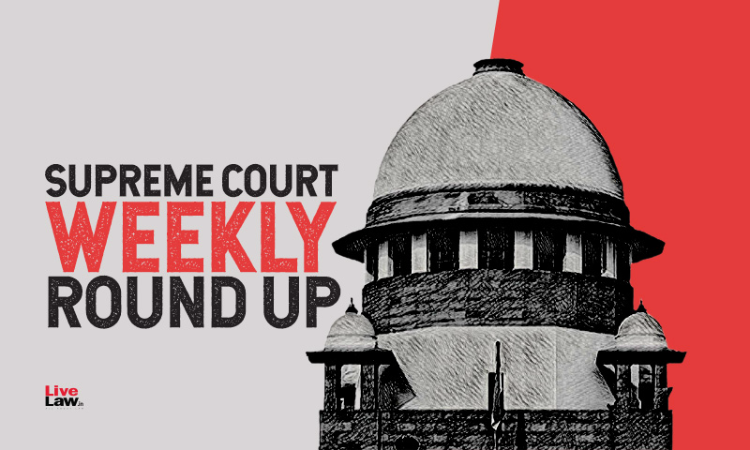Next Story
10 Oct 2021 7:12 PM IST
JUDGMENTS THIS WEEK1. Part-Time Employees Can't Seek Regularization As Matter Of Right Contrary To Govt's Regularization Policy: Supreme CourtCase Title: Union of India and Ors v Ilmo Devi and Anr| Civil Appeal No 5689 of 2021Citation : LL 2021 SC 561The Supreme Court observed that part-time temporary employees in a Government-run institution cannot claim parity in salary with regular...

